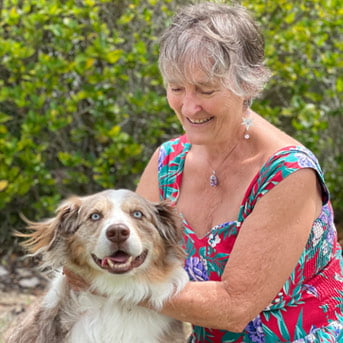Answered by Dr. Christina Chambreau
First, what are tapeworms? There’s a tapeworm. They’re segmented and the way you’ll know that your cat has tapeworms isn’t necessarily from a stool sample you take to the vet but rather on your furniture you’ll see what looks like little grains of rice. You may also see them in the stool of your cat’s litter box or sometimes on you yourself. The good news about tapeworms, whether in cats or dogs, is they don’t cause a lot of damage to their health unless there’s a ton of them. Therefore, you can try some holistic treatments to eliminate tapeworms when you see those little grains of rice. Most importantly, is you need to understand the life cycle of tapeworms and this is critical.
Tapeworms do not get transmitted from your cat to another cat in your household nor can they be transmitted to you. There’s an intermediate host and the intermediate host is fleas or mice. If you have seen fleas on your cat and then you see these little grains of rice you can be pretty sure they’re tapeworms. If your cat hunts and catches mice then that’s the way that you would know that they may be getting tapeworms. So, if you’ve seen these grains of rice and you’d like to try some holistic treatments, one of the ones I would recommend is a totally safe Flower Essence called Para-Outta-Sight carried by Jackson Galaxy. The Para-Outta-Sight would be given for a couple of weeks, even up to a month, and then the tapeworms will just pass out of the cat’s body. After a month you could stop giving it and if you’re no longer seeing any of those little segments, then you probably eradicated the tapeworms.
Another possibility is to feed some diatomaceous earth. Diatoms are little sea critters that have very sharp edges and they actually cut up the tapeworm. There are other herbs that can be used, many different herbs to eliminate tapeworms. Now, if your cat keeps getting tapeworms on a regular basis it’s important to rebalance his system by using homeopathy with a homeopathic veterinarian or a veterinarian trained in Chinese veterinary medicine.
I’m Dr. Christina Chambreau. I’m on the faculty of Holistic Actions!, where you can ask common pet parent questions and get more detailed answers.
Suggested Treatments:
- Para-outta-site and other flower essences
- Herbs
- Diatomaceous earth
Related Symptoms:
- Tiny white granules (like grains of rice) seen in stool, around anus or on your couch!
DISCLAIMER: Holistic Actions! does not provide advice on certified medical treatments. Content is intended for informational purposes only and to equip you with the tools needed for Holistic Medical Decision Making (HMDM). It is not a substitute for clinical assessment, diagnosis, or treatment. Never use content found on the Holistic Actions! website as the basis for ignoring advice from your veterinarian to seek treatment. If you think you may have a veterinary emergency, please call your vet or an animal hospital immediately.

Dr. Christina
Christina Chambreau, DVM, is an internationally known homeopathic veterinarian and associate editor of the Integrative Veterinary Care Journal, she’s written several books on animal healthcare.
After opening her own homeopathy veterinary practice in 1983, she founded the Academy Of Veterinary Homeopathy and was on the faculty of the National Center for Homeopathy Summer School for ten years.
Dr. Christina is also an integrative medicine adjunct faculty liaison for the Maryland Veterinary Technician Program and lectures on a wide array of topics including integrating holistic options into veterinary practices, as well as guidance on how to choose the best approaches to heal animals and sustainability.
